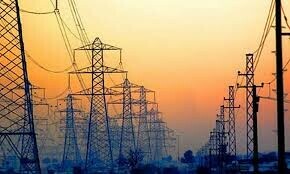The future of inclusive grass-roots development lies in an empowered, functioning local representative government accountable to its constituency.
However, the most difficult task for the local governments is to get the required funds from provincial authorities for the kind of development that fulfills the local needs. This issue can be addressed by enhancing the revenue generation capacity of local governments by giving them powers to collect taxes from local economic activities and to direct the resources solving their specific socio-economic problems.
The local government works at the grass-roots level and is closer to the people in identifying and meeting their development needs. Local representatives are in the best position to efficiently allocate the taxpayer’s money on the required public services.
The local government works at the grass-roots level and is closer to the people in identifying and meeting their development needs
Currently, the local governments are totally dependent on funds released from the provincial governments. The provincial governments, too, have limited revenues raising capacity and depend on the NFCs share from the federal government. This long trail of releasing budgets at federal level passing on to the provincial and then local level is an ineffective way involving time-consuming cumbersome procedures.
Global practices empower local governments and include fiscal autonomy and decision making to serve the local population. In many developed and developing countries, local governments have been strengthened by giving local taxation powers to fund their development agendas. Another popular measure in is to issue municipal bonds to get additional funding for local spending.
A solution to this problem is to grant taxation powers to the union council, tehsil and district councils so that the financing needs of the local governments can be met. These taxation powers need to be comprehensive replacing existing local cess, toll (chungi) and fees. Many research studies have shown that tax collected and spent at local level motivates people to timely pay their dues and keep an eye on the spending priorities financed by these taxes in their constituency.
The locally collected tax can be levied on a wide range of taxable activities including agriculture, property, transport, irrigation and traders. The tax on agriculture, ideally should be in-kind rather in cash. Such a localised collection and spending of agricultural tax will encourage farmers to pay their due share. Similarly, property tax should also be handed over to the local governments as its proximity to the taxmen will enhance the revenues’ potential. These tax avenues will generate enough revenues for meeting the development needs at local level. In almost, all of these taxation areas, the provincial governments will have to share existing taxation powers.
A healthy combination of these taxation measures will reduce the fiscal pressure on provincial and federal governments. An additional benefit of such a measure would be that it will convey a sense of ownership of development programmes among the public who should also be empowered for accountability of the local representatives on spending of the collected tax.
Published in Dawn, Business & Finance weekly, July 25th, 2016












































Dear visitor, the comments section is undergoing an overhaul and will return soon.